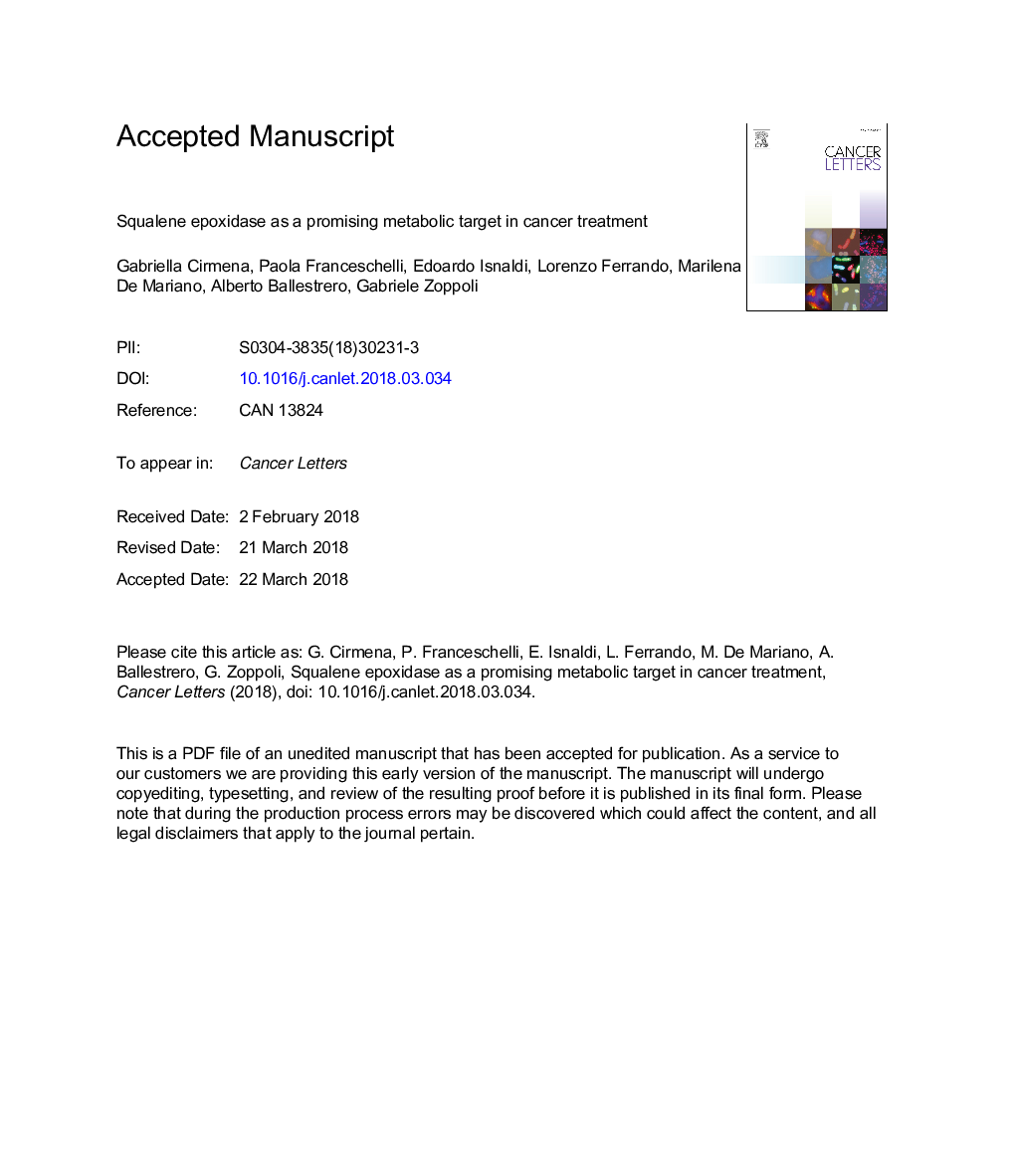| Article ID | Journal | Published Year | Pages | File Type |
|---|---|---|---|---|
| 8434437 | Cancer Letters | 2018 | 28 Pages |
Abstract
Oncogenic alteration of the cholesterol synthesis pathway is a recognized mechanism of metabolic adaptation. In the present review, we focus on squalene epoxidase (SE), one of the two rate-limiting enzymes in cholesterol synthesis, retracing its history since its discovery as an antimycotic target to its description as an emerging metabolic oncogene by amplification with clinical relevance in cancer. We review the published literature assessing the association between SE over-expression and poor prognosis in this disease. We assess the works demonstrating how SE promotes tumor cell proliferation and migration, and displaying evidence of cancer cell demise in presence of human SE inhibitors in in vitro and in vivo models. Taken together, robust scientific evidence has by now accumulated pointing out SE as a promising novel therapeutic target in cancer treatment.
Keywords
Related Topics
Life Sciences
Biochemistry, Genetics and Molecular Biology
Cancer Research
Authors
Gabriella Cirmena, Paola Franceschelli, Edoardo Isnaldi, Lorenzo Ferrando, Marilena De Mariano, Alberto Ballestrero, Gabriele Zoppoli,
